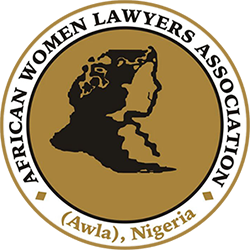Today, November 25th, marks the beginning of the 16 Days of Activism campaign, a global initiative to eliminate violence against women and girls. The United Nations General Assembly designated November 25th as the International Day for the Elimination of Violence Against Women, highlighting the urgent need to address this pervasive human rights violation.
This campaign, popularly called the ORANGE DAYS, starts on November 25 and concludes on December 10 (Human Rights Day). It aims to raise awareness about the indignities, subjugation, and violence women face—including rape, domestic violence, and discrimination—while emphasizing that the true scale of the issue is often hidden.
The Alarming Reality
Globally, an estimated 736 million women—nearly one in three—have experienced physical and/or sexual violence by an intimate partner, non-partner sexual violence, or both at least once in their lives. In the past year alone, 1 in 8 women and girls aged 15-49 has faced intimate partner violence.
The Persistent Challenges
Despite progress, gender-based violence persists due to:
- Inadequate Legislation: Laws like the Violence Against Persons (Prohibition) Act lack proper implementation, funding, and enforcement.
- Societal and Cultural Norms: Harmful norms remain deeply ingrained, perpetuating violence.
- Insufficient Support Services: Victims often lack access to counseling, medical care, and legal aid, especially in rural areas or for marginalized groups.
The Role of ECOWAS
The Economic Community of West African States (ECOWAS) plays a critical role through policies like the ECOWAS Gender Policy and the ECOWAS Protocol on the Rights of Women, promoting gender equality and empowerment.
Country-Specific Efforts
Nigeria
- Legislative Framework: Enacted the Violence Against Persons (Prohibition) Act to protect women and girls.
- Societal Norms: Addressing stereotypes through education and awareness.
- Challenges: 1 in 3 women experience physical or sexual violence (UNICEF).
Burkina Faso
- Laws: Criminalized violence against women, including domestic violence and female genital mutilation.
- Institutions: Established the Ministry of Women and the National Committee for Prevention.
- Challenges: Limited access to justice and persistent harmful norms.
Call to Action
Ending violence requires sustained effort beyond these 16 days. Here are 10 ways to make a difference:
- Listen to and believe survivors.
- Educate children about consent and gender equality.
- Demand better services for survivors (shelters, helplines).
- Understand and promote consent.
- Recognize signs of abuse and intervene.
- Start conversations on social media.
- Challenge rape culture.
- Fund women’s organizations.
- Hold each other accountable for sexist behavior.
- Advocate for data collection to inform policies.
Conclusion
Gender-based violence is a global crisis manifesting in domestic violence, trafficking, child marriage, and more. Our collective action—challenging norms, supporting survivors, and advocating for equality—can create a safer world.
Join the movement. Take action today.
About AWLA
The African Women Lawyers Association (AWLA) empowers women and girls through legal aid, advocacy, and education.
Get Involved:
- Email: awlainternational@gmail.com | awlanigeria2015@gmail.com
- Website: https://awla.international
- Social Media: @AWLAInternational
Thank you.
Mandy Demechi- Asagba Esq. FICMC
PRESIDENT

